There's a stigma around weight loss surgery, I know that. But more than a year after I did it, I’ve gone from nearly 135kg (300 pounds) to 72kg (160 pounds) and I’ve never never felt better. Sure, the procedure isn’t right for everyone, but my only regret is that I didn’t have the surgery sooner.
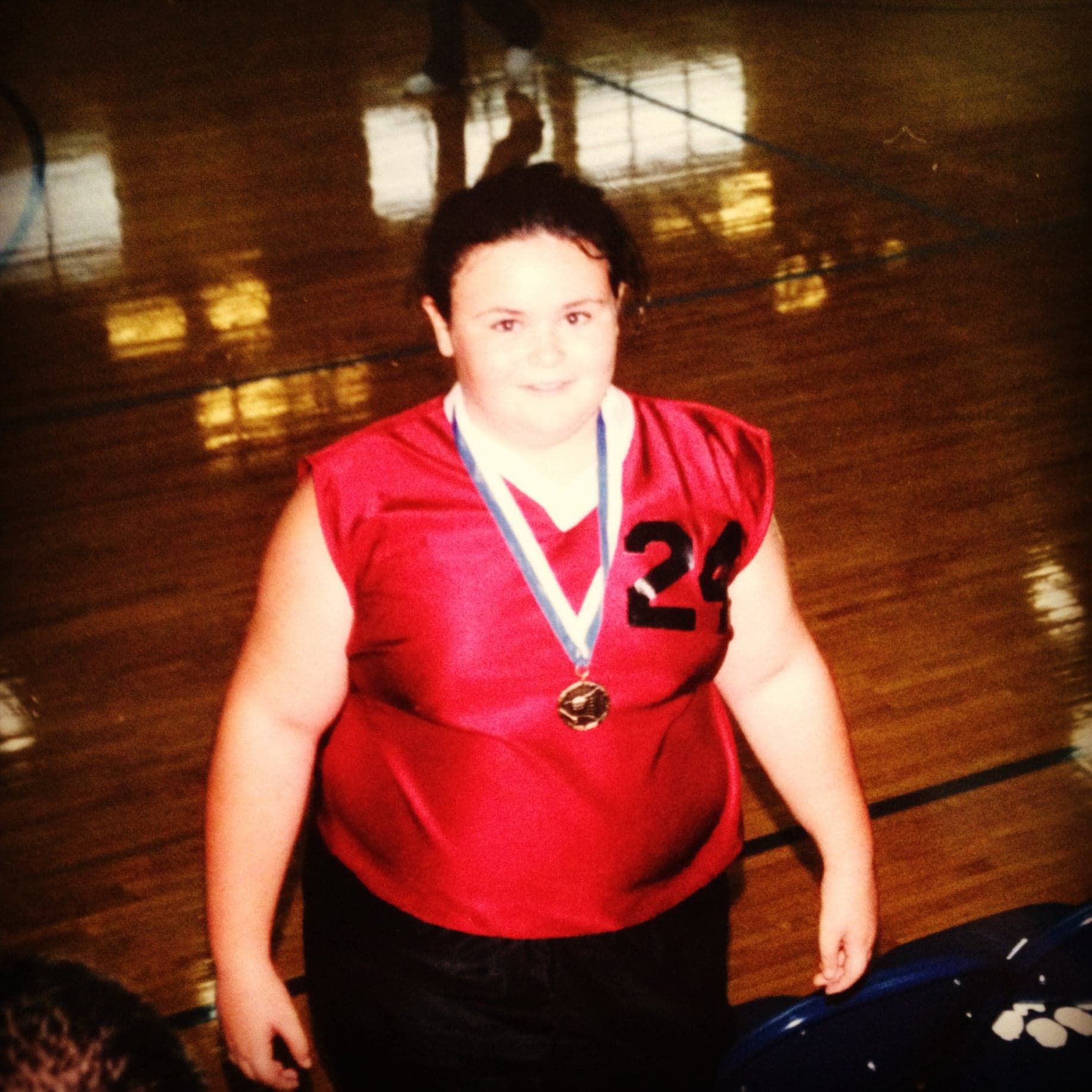
Growing up in a small town, I don’t remember anyone ever putting me down for being bigger which, unfortunately, is not the experience I think most overweight kids have. One memory that does stick out: You know how, in school, they'd send around a sign-up sheet for t-shirts for whatever team or group activity you're doing? Everyone can see the size you request. My classmates would write down smalls and mediums and I’m putting down an XL at 8 years old. A lot of times, I’d write down a size I knew wouldn't fit to avoid feeling embarrassed.
Today, people still tend to think that overweight people are unhealthy. That if we just ate healthier and exercised we’d lose all the weight. But that’s not true. I have been overweight since those t-shirt sign-up days - even while playing sports like softball and volleyball. I’ve done Weight Watchers and Curves, but I always gained the weight right back. I even did CrossFit for two years in my early twenties. That worked at first - only to gain it all back plus 11kgs. The yo-yo-ing is a fairly common experience for anyone who’s tried to lose weight, but obesity is different. A nurse put it to me like this: You don't just tell someone who's diabetic to eat better. You tell them to eat better, and you also take corrective medical measures. It was because of her that I realised I may not be able to lose weight on my own.
I decided to go for it when, at 25, I stepped on a scale and 134 (297) flashed across the screen. It scared me. My parents were in their mid-50s and having a lot of issues because of their weight; my mum needed a knee replacement and my dad had diabetes. I wanted to get ahead of any chronic illnesses before I had them. And weight loss surgery felt like a sound way to get started.
First, a Bikini Dance Competition
It just so happened that my mm, a nurse, was visiting me when I had this epiphany. I told her what I was thinking, assuming she would say it wouldn’t work. Instead she said, “I know a lot of people have had a lot of success with that, I think it would be great.” We started researching right away.
I joined a couple Facebook groups and started following all the weight loss surgery hashtags on Instagram. I heard from people who had lap-band surgery in the early 2000s, and they had gained all the weight back. Others had a gastric bypass, which is pretty invasive and tends to have more complications. I quickly settled on gastric sleeve surgery, a procedure that removes a portion of your stomach and leaves you with minimal scarring.
Different insurance companies require different things before they will approve you for weight loss surgery. Baseline, you have to have a BMI of at least 40. I also had to have a psychological evaluation, do a sleep apnoea test, and participate in a six-month supervised diet that required monthly check-ups with my doctor. It’s basically a last-ditch effort to see if you can lose the weight on your own, which is insulting. I don’t think anyone’s first approach to weight loss is “I’m going to have 85 percent of my stomach cut out.” At the same time, it gave me a window to mentally and physically prepare for what was to come.
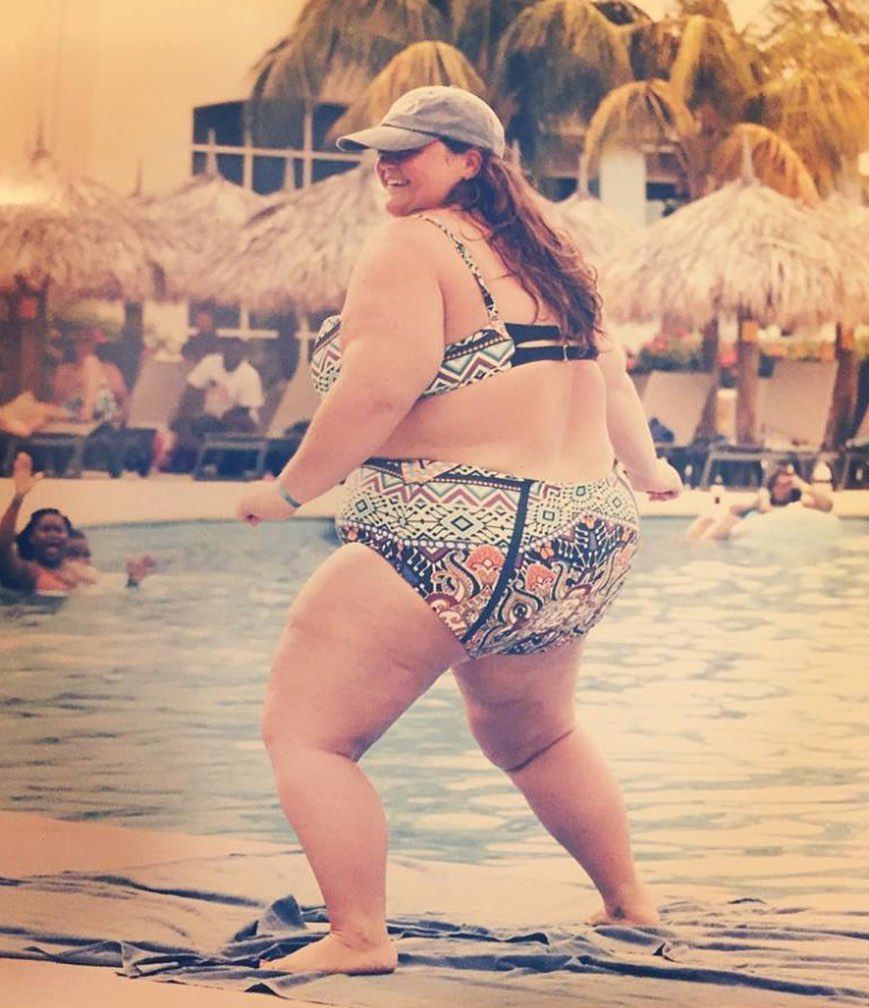
For seven days leading up to my surgery, I was on liquid diet. I also couldn’t have any alcohol before and for months after the procedure; the point is to shrink your liver, since doctors have to lift it up during surgery to reach your stomach. Before I took that final step, I went on an all-inclusive solo trip to Jamaica and indulged in all the things I wouldn’t be able to have for a while. When I was packing, I got the idea to buy a couple bikinis. I had never worn one, and I really wanted that trip to be about loving myself and my body at its heaviest. And it was a wonderful experience. On my last day there, I even entered a bikini dance competition - and I won. I bought a picture from the resort’s professional photographer to commemorate the moment. In it, you can see me up there dancing and in the background is another curvy woman in the pool, and she’s cheering me on. I still have that picture hanging on my fridge because I want to honour that moment of loving myself and letting the world see me not having any inhibitions.
The surgery was scheduled for June 18, 2018. My mum went with me, and we stayed in a hotel near the hospital the night before. I could only have clear liquids, no food or drinks the morning of (which is normal protocol for any surgery). I didn’t have a single reservation that night. I slept great and woke up ready, like “let’s do this.”
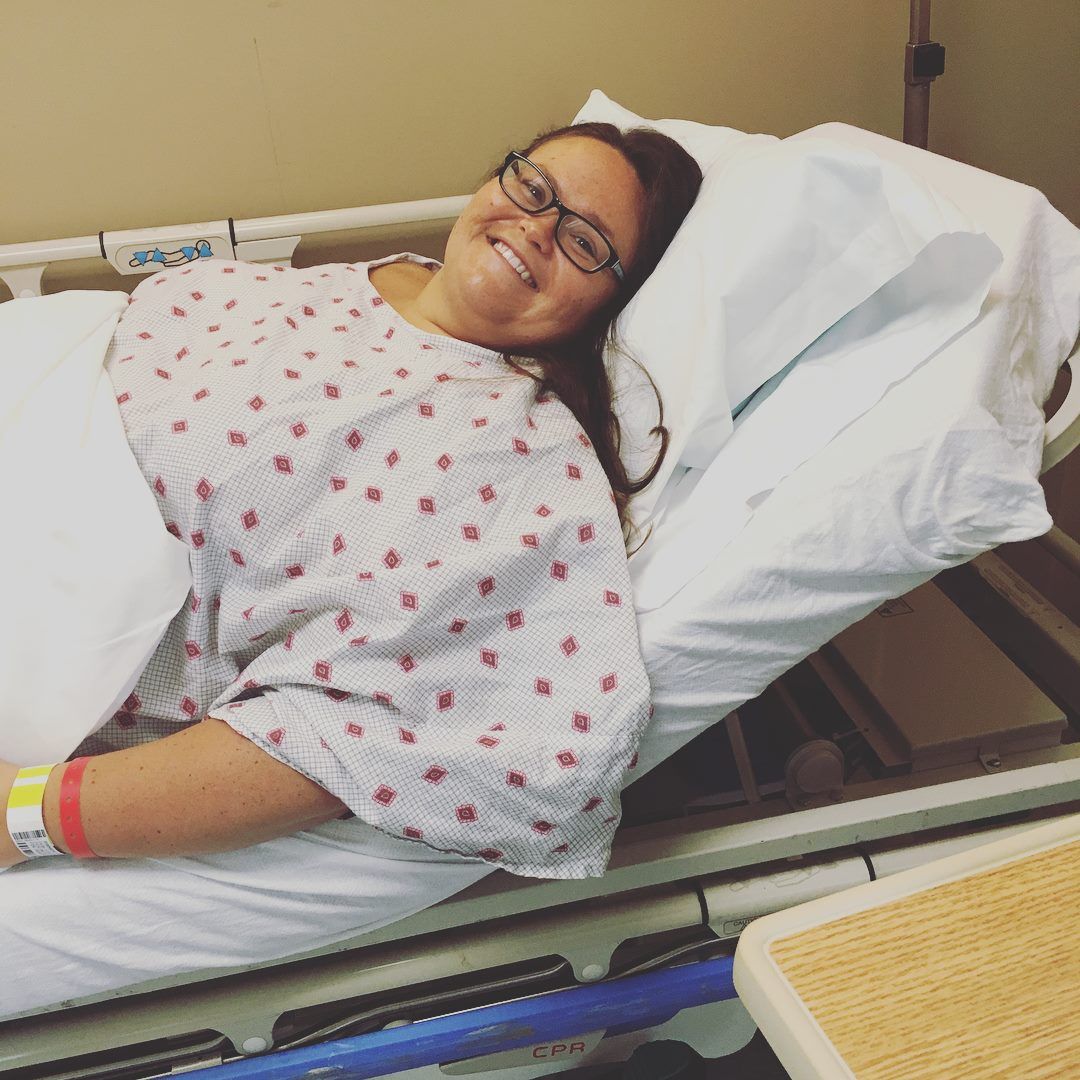
I don’t remember much from the big day until waking up in the post-op room with an oxygen mask on and feeling really nauseous from the anaesthesia. Eventually they took me to a room to stay overnight for monitoring. But first I wanted to get up and walk; since they inflate your stomach with air to perform the surgery, it can be really painful if you don’t move and get it out. The nurses said I walked further than anyone else they’d seen.
Liquid Diet Life
There’s a whole system you have to follow when incorporating food back into your life after having weight loss surgery. You start by consuming 710mL (24oz) of liquid and building up to 1.9L (64oz). That was actually the hardest part. My mum kept a notebook and she would be like, “You’ve had a iceblock, that’s 60mL (2oz).”
Then you graduate to pureed foods. I ate a lot of yoghurt and sugar-free iceblocks at first. Once I got to refried beans with cheese it was like, “Finally, something with flavour!” You can’t have solid foods until week six. It was hard to go that long, but at the same time I was like, “I don’t want to fuck this up so I'm going to do what they told me.” I also didn’t feel great after the surgery. My body hurt; I was sleepy and foggy because then anaesthesia hadn’t fully worn off.
Still, I didn’t have any trouble getting around after the surgery. My doctors encouraged me to walk every day, so I did. At four weeks you’re supposed to start doing more cardio and adding in weights, which is tough because you’re consuming around 2,500kJ (600cal) a day at that point and you don’t have much energy. But I pushed through because I wanted the surgery to be successful.
Exiting the Honeymoon Phase
Everyone who has weight loss surgery feels like they lose the weight really slowly. Early on, I thought, Should I have done this? Nothing is happening. Because you’re still swollen and it takes a while for that to go away. But soon I was dropping half a kilo (a pound) a day. I lost 11kg (25oz) in the first month, then 5-7kg (12-16 pounds) every single month for a while.
You lose the most weight in that first year; it's called the honeymoon phase. But you know you’re eventually going to stall. I went from losing 5kg (10 pounds) a month, to 4 or 3 kilos, and now I’m at a place where I lose maybe a kilo (two pounds) a month. In June, I actually gained a kilos (two pounds), but that’s okay. My goal is to get to 68kg (150 pounds) and right now I fluctuate between 72-74kg (160-165 pounds). While I still hope to lose the last 5kg (10 pounds) just to say I reached my goal, I’m happy with where I’m at now and plan to maintain my current size.
Losing almost 68kg (150 pounds) has changed my life. A year ago, shopping was very difficult. As someone who was a size 24, if I went somewhere and forgot my swimsuit, that meant I didn’t have a swimsuit. Running into Target to buy a replacement on a whim was not an option. Now I can go into any store and find something to wear. Early on, I bought size 14 pants as my goal. Now that I’m a size 10, they’re too big. I’m just now getting to a place where it makes sense to start building a new wardrobe.
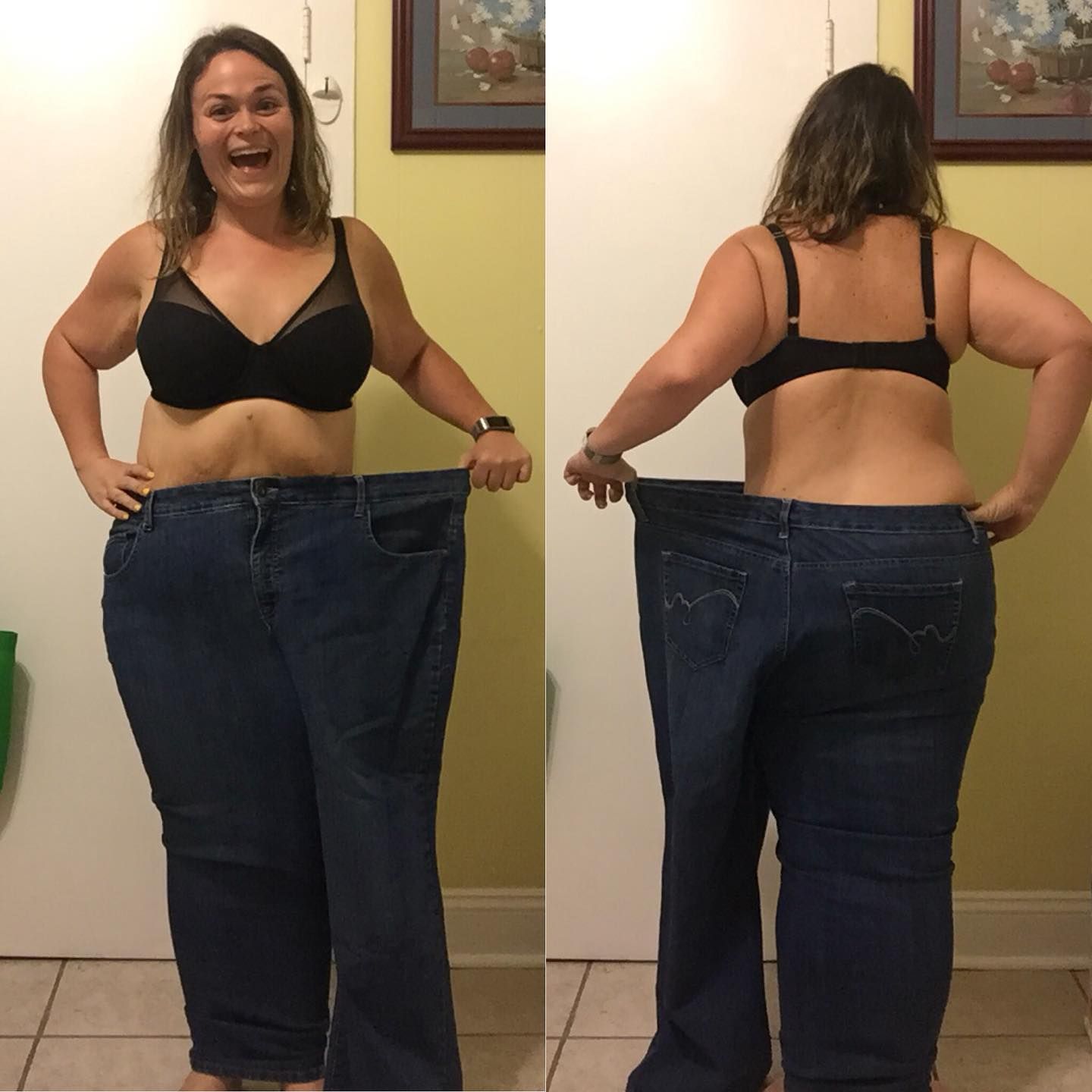
Here's something that really surprised me: I became a lot more critical of my appearance after the surgery. When I was larger, I didn't feel self conscious because that was the body I'd been in for so long and I had accepted it. Now, I’m in a new body and I’m noticing all my flaws. Like, I’ve always had bigger arms. Now that I’ve lost weight, there’s all this extra skin. I'm planning to get that, as well as some of the excess skin around my stomach, removed eventually.
But I'm only critical of myself to a point. One of my doctors told me, “If you’re into running, you’re tiny enough, you could get down to 56kg (125 pounds).” And honestly, I just don’t have a desire to be that small. I’m happy with the weight I am now. And I'm grateful that I have more energy and can live a healthier, hopefully longer life.






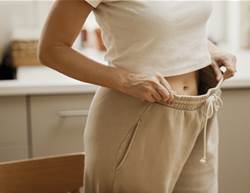
.png&h=193&w=250&c=1&s=1)
.png&h=193&w=250&c=1&s=1)
